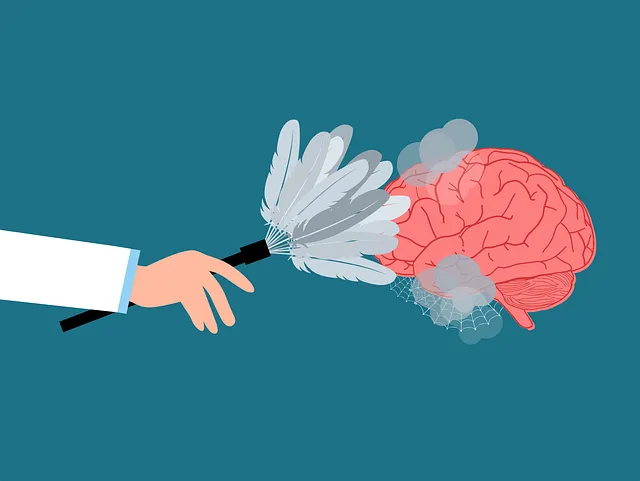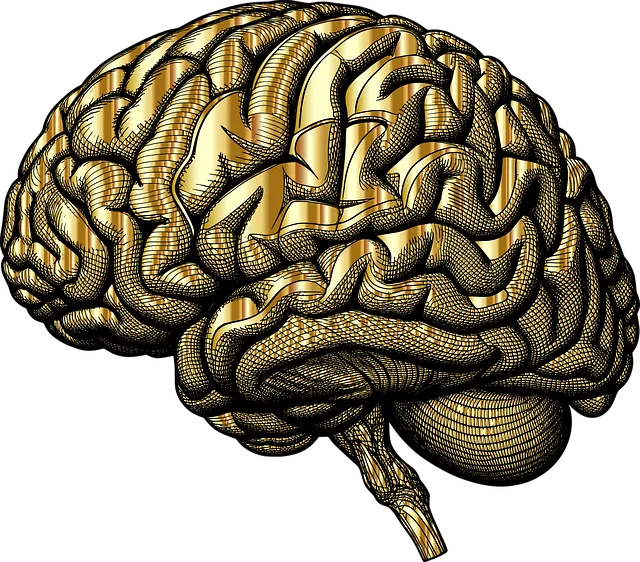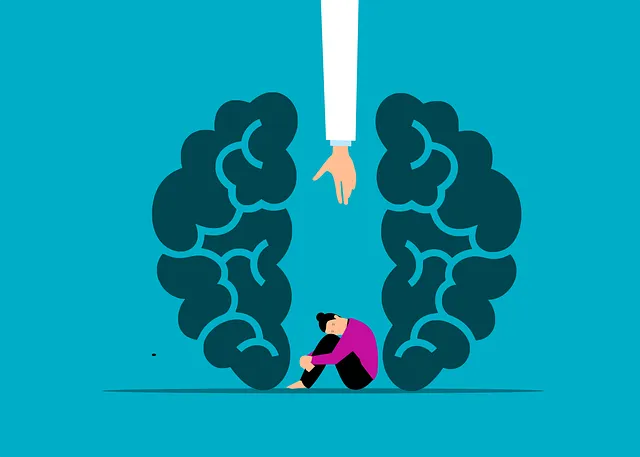In today's diverse healthcare landscape, cultural competency is essential for delivering quality mental health services, as exemplified by the Kaiser Permanente (KP) center in Parker. KP Parker prioritizes understanding patients' unique backgrounds, beliefs, and practices to address language barriers, cultural taboos, and differing stress management approaches. Through self-awareness exercises, professional development, and initiatives like Mental Wellness Journaling Exercises, they create an inclusive environment. Their Community Outreach Programs directly engage diverse communities, enhancing cultural sensitivity and trust. This holistic approach improves patient outcomes, respects individual experiences, and bridges the gap in mental health access, setting a benchmark for inclusive care at KP Parker.
Healthcare provider cultural competency training is essential in today’s diverse society. This article explores the critical need for such training, drawing on the successful model of the Kaiser Permanente Mental Health Access Center. We delve into effective training strategies and share a compelling case study of Parker’s journey, highlighting how cultural competency improved community mental health services. By understanding cultural competency frameworks, healthcare providers can better serve diverse communities.
- Understanding Cultural Competency in Healthcare: A Necessary Framework
- Kaiser Permanente Mental Health Access Center: A Model for Cultural Sensitivity
- Training Strategies: Empowering Healthcare Providers with Cultural Awareness
- Parker's Journey: Improving Community Mental Health Services through Cultural Competency Training
Understanding Cultural Competency in Healthcare: A Necessary Framework

In today’s diverse healthcare landscape, cultural competency is no longer an option but a necessity. This framework ensures that healthcare providers can effectively deliver quality care to patients from various ethnic, cultural, and socioeconomic backgrounds, including those who may be seeking services at Kaiser Permanente mental health access centers in Parker or similar locations nationwide. Cultural competency goes beyond mere sensitivity; it involves understanding and respecting diverse beliefs, values, and practices, which significantly impact an individual’s health and wellness. This includes recognizing the potential for language barriers, cultural taboos around certain health issues, and unique approaches to stress management, emotional regulation, and self-care.
For instance, a patient from a different cultural background may have specific expectations or preferences regarding their healthcare experience. They might rely on family support systems differently, prefer alternative healing practices, or have unique interpretations of symptoms and treatments. By incorporating self-awareness exercises and ongoing professional development, healthcare providers can enhance their cultural sensitivity, fostering an environment where every patient feels heard, understood, and empowered to take charge of their mental health. This holistic approach not only improves patient outcomes but also strengthens the bond between caregivers and those they serve.
Kaiser Permanente Mental Health Access Center: A Model for Cultural Sensitivity

The Kaiser Permanente Mental Health Access Center in Parker serves as a shining example of how healthcare organizations can foster cultural sensitivity and improve patient care. This center has implemented innovative strategies to enhance cultural competency, ensuring that mental health services are accessible and tailored to diverse communities. By focusing on empathy building and conflict resolution techniques, the center creates a safe and supportive environment for individuals from various cultural backgrounds.
One of their unique approaches includes providing guidance on Mental Wellness Journaling Exercises, encouraging patients to reflect on their experiences and express themselves creatively. This practice not only improves mental wellness but also facilitates open communication between patients and providers, further enriching the center’s holistic care model. The Kaiser Permanente initiative showcases that prioritizing cultural sensitivity is a game-changer in healthcare delivery, setting a benchmark for other facilities striving to offer inclusive and effective mental health services.
Training Strategies: Empowering Healthcare Providers with Cultural Awareness

Effective cultural competency training for healthcare providers involves strategies that empower them to understand and connect with diverse patient populations. One such approach is the implementation of a Community Outreach Program, where providers can engage directly with communities they serve. For instance, Kaiser Permanente’s Mental Health Access Center in Parker has successfully used community outreach to improve access to mental health services, fostering trust and cultural understanding.
Additionally, incorporating practices like Mindfulness Meditation and Emotional Well-being Promotion Techniques into training curricula can enhance cultural sensitivity. These techniques not only support providers’ emotional resilience but also enable them to create safer, more inclusive spaces for patients from various backgrounds. By integrating these strategies, healthcare providers can better navigate cultural differences, improve patient outcomes, and deliver care that respects and values every individual’s unique experiences and perspectives.
Parker's Journey: Improving Community Mental Health Services through Cultural Competency Training

In an effort to enhance mental health services within their community, the Kaiser Permanente Mental Health Access Center embarked on a transformative journey inspired by Parker, a diverse and vibrant neighborhood. Recognizing the need for cultural competency among their workforce, they implemented a comprehensive training program tailored to address the unique challenges faced by local residents from various ethnic and cultural backgrounds. This initiative aimed to bridge the gap in mental health access and ensure that services were inclusive and effective for all.
The program focused on educating mental health professionals through interactive workshops and seminars, covering topics such as mindfulness meditation and cultural bias awareness. By delving into risk assessment for mental health professionals, they equipped staff with the skills to navigate complex interpersonal dynamics. Furthermore, the center designed mental health education programs that promoted understanding of diverse communities’ specific needs, fostering an environment where every individual feels heard and supported. This holistic approach not only improved access but also enhanced the quality of care provided at the Kaiser Permanente Mental Health Access Center.
Cultural competency training is a game-changer in healthcare, as evidenced by initiatives like the Kaiser Permanente Mental Health Access Center and Parker’s Journey. By empowering providers with cultural awareness, we can improve patient outcomes and bridge the gap in community mental health services. Integrating these strategies into healthcare education ensures a more inclusive and sensitive approach, benefiting diverse communities. As we navigate complex patient populations, cultural competency serves as a vital tool for fostering trust and delivering quality care to all.






